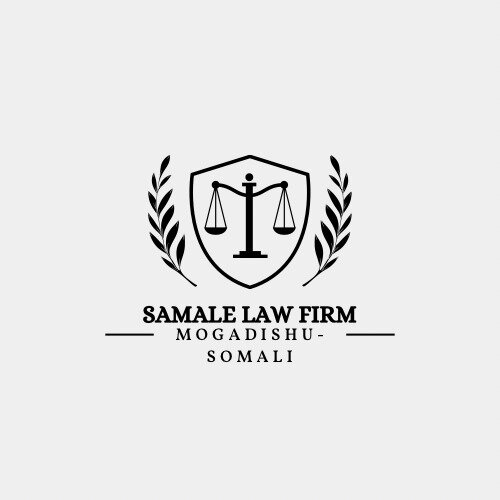Best Real Estate Due Diligence Lawyers in Somalia
Share your needs with us, get contacted by law firms.
Free. Takes 2 min.
Free Guide to Hiring a Real Estate Lawyer
Or refine your search by selecting a city:
List of the best lawyers in Somalia
About Real Estate Due Diligence Law in Somalia
Real Estate Due Diligence in Somalia involves a comprehensive evaluation of property before its acquisition. This process ensures the buyer is making an informed decision by verifying the property's legal status, examining any potential liabilities, and assessing its value. In Somalia, due diligence is particularly crucial due to a history of fragmented land ownership records and ongoing disputes over property rights. Therefore, engaging in thorough due diligence helps mitigate risks and protects individuals or businesses from potential legal conflicts.
Why You May Need a Lawyer
There are several reasons why someone involved in a real estate transaction in Somalia might need legal assistance:
- Verification of Ownership: A lawyer can authenticate property ownership to ensure that sellers have the legal right to sell.
- Reviewing Contracts: Legal professionals provide guidance in reviewing sale agreements and other documents to avoid unfavorable terms.
- Resolving Disputes: Lawyers can facilitate resolving ownership disputes among different claimants.
- Compliance with Local Laws: They ensure adherence to local regulations and help navigate bureaucratic procedures.
- Mitigating Risks: Lawyers can identify potential risks such as unpaid taxes or easements that could affect property value.
Local Laws Overview
The legal landscape in Somalia regarding real estate is complex due to historical conflicts that have led to unclear property ownership records. Key aspects include:
- Historical Claims: Many properties have multiple claims of ownership that need legal resolution.
- Land Tenure Systems: These systems can vary significantly across different regions in Somalia.
- Regulatory Framework: A mix of statutory law, customary law, and Sharia law influences real estate transactions.
- Property Taxes and Liabilities: Understanding these are crucial to ensuring compliance with governmental requirements.
Frequently Asked Questions
1. What documents are needed for real estate due diligence in Somalia?
Typically, you need land title deeds, survey plans, tax receipts, and any existing lease agreements.
2. How can I verify the owner of a property in Somalia?
Engaging a lawyer to verify ownership through government records and local authorities is advisable.
3. Are there risks related to land tenure systems?
Yes, since land tenure systems differ, failure to understand them can lead to legal complexities.
4. What is the role of customary law in real estate transactions?
Customary law plays a significant role, influencing property rights and dispute resolutions in many regions.
5. How do I assess the value of a property in Somalia?
An independent appraisal by a qualified surveyor can help in determining a property's market value.
6. What are common disputes in real estate dealings?
Common disputes include ownership claims, boundary issues, and disagreements over sales contracts.
7. How can disputes be resolved?
Disputes can be addressed through negotiation, mediation, or court proceedings, often requiring legal assistance.
8. Are there regulatory bodies overseeing real estate in Somalia?
Yes, the Ministry of Public Works, Reconstruction, and Housing is a key regulator, along with local government bodies.
9. Can foreigners own property in Somalia?
While foreigners can lease land on a long-term basis, outright ownership often requires additional approvals from the government.
10. How important is it to have a legal professional involved in real estate transactions?
Given the complexities of Somali real estate law, involving a legal professional is highly advisable to avoid potential pitfalls.
Additional Resources
For more assistance in Real Estate Due Diligence, consider consulting the following:
- The Ministry of Public Works, Reconstruction, and Housing for regulatory guidelines.
- Local government offices for property registration and verification services.
- Legal aid organizations that specialize in property law for free or low-cost legal advice.
- Real estate professionals with experience in Somali markets for practical insights.
Next Steps
If you need legal assistance in Real Estate Due Diligence in Somalia, consider taking the following steps:
- Consult with a real estate attorney familiar with Somali law to guide you through the process.
- Gather all necessary documents relating to the property and review them with your legal advisor.
- Engage with local authorities or land registries to ensure the legitimacy of the property's title.
- Stay informed about local regulations and any changes in real estate laws that could affect your transaction.
Lawzana helps you find the best lawyers and law firms in Somalia through a curated and pre-screened list of qualified legal professionals. Our platform offers rankings and detailed profiles of attorneys and law firms, allowing you to compare based on practice areas, including Real Estate Due Diligence, experience, and client feedback.
Each profile includes a description of the firm's areas of practice, client reviews, team members and partners, year of establishment, spoken languages, office locations, contact information, social media presence, and any published articles or resources. Most firms on our platform speak English and are experienced in both local and international legal matters.
Get a quote from top-rated law firms in Somalia — quickly, securely, and without unnecessary hassle.
Disclaimer:
The information provided on this page is for general informational purposes only and does not constitute legal advice. While we strive to ensure the accuracy and relevance of the content, legal information may change over time, and interpretations of the law can vary. You should always consult with a qualified legal professional for advice specific to your situation.
We disclaim all liability for actions taken or not taken based on the content of this page. If you believe any information is incorrect or outdated, please contact us, and we will review and update it where appropriate.
Browse real estate due diligence law firms by city in Somalia
Refine your search by selecting a city.









